Leadership In a Northwest Church for Spiritual Vitality
Leading a small congregation to become a healthy community has its own unique challenges. For the past two and half years I have led a struggling church out of financial limitations, initiating building repairs, creating staff leadership and most importantly a vibrant focus on the mission of Jesus and empowering people to follow him. This endeavor with all of its challenges was aided by the doctoral learnings through George Fox Evangelical University. The key understandings of personal leadership, clarity about our role and mission in our city and integrating the cultural context help equip the church for spiritual vitality and engaging witness in our city.
Personal Leadership and Context
Endeavoring to lead a church begins with leadership. Assessing one’s leadership is the first important step. Knowing the top few strengths can enable one to clearly distinguish one’s role in the church. Those strengths are put to use not for the leader’s benefit alone but to serve the purpose of the church. Simon Sinek challenges leaders to think of their role as more than working hard, having goals and being highly educated.
The leader’s role is a presence that embodies the “why” of the organization. Living out he “why” of the church helps develop trust in a leader. If there is a disconnect between what the leader believes and what the leader demonstrate then trust erodes.
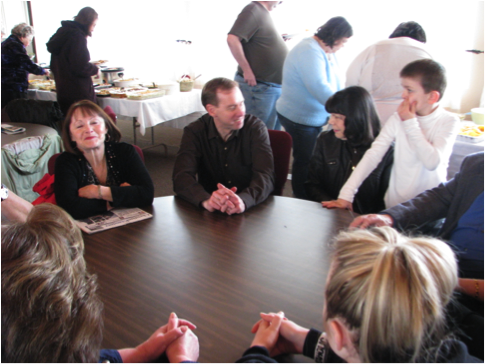
The goal of every Christian leader is to influence people with our words and deeds to believe the “why” that drives everything else. You can’t convince someone of trust with words alone, you have to earn it.

There are three contexts to keep in mind.
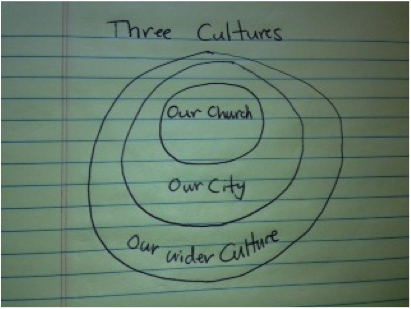
One is the context of the culture of the church. Each member has expectations and a history of church experience to be kept in mind. There are practices and beliefs that may or may not be evident or not even shared within a congregation. Secondly, there is the context of the city where a pastor leads. The specific Northwest environment affects the contour of the church. Thirdly, there are the wider cultural shifts that shape local contexts. Without keeping this in mind a church may be caught up in either being marginalized or capitulating to consumer trends.
Congregational Relationships and Leadership
Small churches each have their own cultural environments. What is instructive is for leaders to assess the values of their followers and make choices consistent with them. So how does one lead a church knowing that the style must match the context where a person leads? When we surveyed the congregation about one thing they would ask God, we became aware of two things. One there is a lot of pain and painful questions that people live with every week. Secondly, people are thinking about very deep theological questions. This challenges leadership to bring context to those questions and not pose simplistic answers.
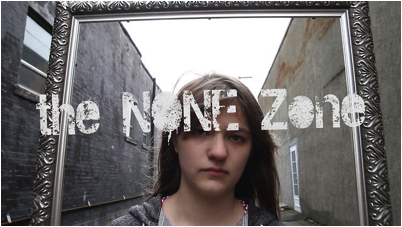
The Northwest Cultural Context
There is an ambiguity about religious commitments in the Pacific Northwest. It has been called the “None Zone” in a study by the Pew Forum’s “Religious Landscape Survey” conducted in 2001. 25% of people in the Northwest checked “none” when indicating their religious preference compared with 14% of the national average.
Cavanaugh states, “Consumerism is a restless spirit that is never content with any particular material thing.” What he says that is insightful is that the free market has no end to which desire is directed, no telos. We consume with no recognition of the goal of our lives. This is not just about wanting too much, it is a matter of wanting without any idea of why we what we want.
The reality that we are the body of Christ gives a better picture of the good life than consumerism. God shares his life with us. Each of us opens our lives to him. Then we open our lives to each other.
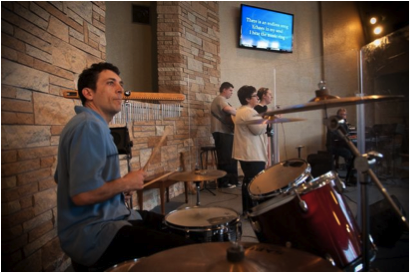
We become contributors to the life of the church. Sharing our common love for Jesus. Sharing whatever we can so each person can thrive. We are to work together for our mutual well-being.
Evangelism and the Wider Culture
Every congregation is challenged by our current culture. As Christian leaders it is not easy to navigate the shifting social pressures. It is not an easy “what would Jesus do?” process. There are two seeming apparent options as the church engages with in this secular world; one is to retreat into a Christian enclave, the other is to aggressively attack both the secular culture and its voice in political venues. Douthat claims our efforts to evangelize have backfired. Our attempt to engage in politics and empire building has not changed the culture, instead people are moving away from institutional faith. The language of outrage and resentment has repelled those we wish to include.

Charles Taylor points out that we may desire to do what is right in society, but understanding the individualized context helps makes sense of what that right is to be. What is missing is the importance of mutual benefit. Taylor states that “members of society serve each others needs, help each other, in short, behave like the rational and sociable creatures they are.”
As Christians we permeate society with our lives: word and deed. Not just in so-called Christian activities under the guise of evangelism, but every activity in which human beings are active. Hunter calls us to be “Faithfully Present”.
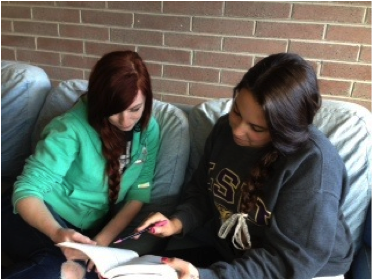
To be immersed in our cities lives and offer our distinct message and lifestyle by being relationally present to the people in our neighborhoods.
One way we have done this is by continually organized neighborhood barbeques at a local apartment complex in order to help form community.
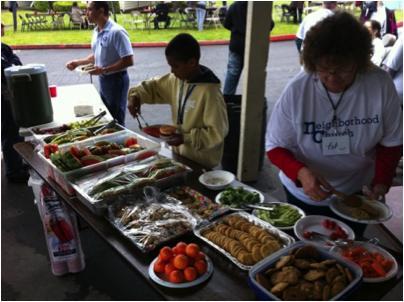
Another is to form a connection with our local food bank and community service provider called Families Unlimited Network. One of our members has advocated for them and I now serve on their board.
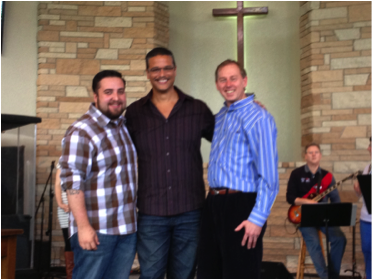
Our power is not coercive, and certainly we no longer have positional power. But Hunter suggests that ordinary everyday social relationships are our means to be fully and faithfully present. Our role in those relationships is to help form disciples of Jesus. In order to do that we have to be willing to live in the tension of affirming what is good in the culture and where we live in contrast to it. Christians working for the mutual benefit in acts of service is one compelling way to engage our communities. It moves past individualistic and even self focused ways to be a witness to the reconciling message of Christ.
Cavanaugh, William T. Being Consumed: Economic and Christian Desire.
Douthat, Russ. Bad Religion: How We Became a Nation of Heretics.
Hunter, James Davidson. To Change the World.
Killen, Patricia and Mark Shibley. Religion and Public Life in the Pacific Northwest:The None Zone.
Nohria, Nitkin and Rakesh Khurana. Handbook of Leadership Theory and Practice.
Polanyi, Karl. The Great Transformation.
Sinek,Simon. Start with Why.Smith, Christian and Melinda Lundquist Denton. Soul Searching: The Religious and Spiritual Lives of American Teenagers.
Wellman, James K, Evangelical Vs. Liberal
Leave a Reply
You must be logged in to post a comment.